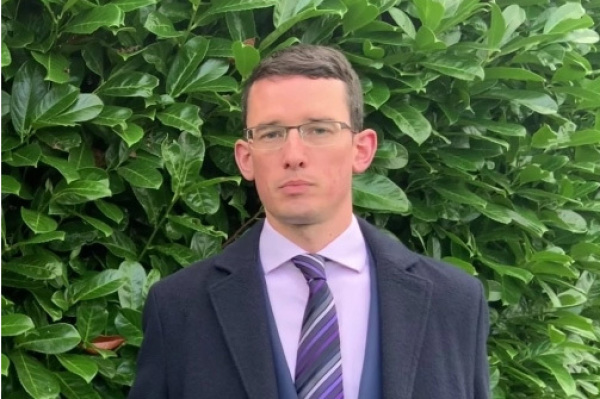'Christian nationalism' or a 'needed' correction?: World reacts to Trump's 'anti-Christian bias' task force
5. Andrew Seidel
Andrew Seidel, a lawyer with the Freedom From Religion Foundation, another organization known for pressuring schools and government agencies to adhere to a strict separation of church and state, questioned the motive behind the task force.
He called it "an attempt to recover their declining Christian privilege and supremacy."
"Christians are still the majority in this country. They are overrepresented in Congress and almost every other government body," Seidel wrote in a Thursday X post. "But the demographics are shifting. Rapidly. And that's precisely why we are seeing this rise of Christian Nationalism."
In a follow-up post on Friday, the lawyer linked to a blog post he wrote for Americans United for Separation of Church and State. The advocacy group disagreed with Trump's framing of the conviction of pro-life activist Paula Paulette Harlow as an example of bias that justified the creation of a task force.
During the second National Prayer Breakfast, the president claimed Harlow was charged under the FACE Act for "praying peacefully outside of an abortion clinic." Trump also accused the sentencing judge, Judge Colleen Kollar-Kotelly, of mocking the activist's Christian faith.
In June 2024, the judge sentenced Harlow to 24 months in prison for participating in a 2020 blockade of the Washington Surgi-Clinic.
According to a trial brief for the case, several of the defendants reportedly used chairs to block the clinic's entrance, tying themselves together with chains and ropes. As the activists entered the facility, a nurse is said to have injured her ankle while attempting to stop them. Harlow was also accused of deliberately falling on a clinic employee.
Seidel argued that there was nothing "selective" about the prosecution against Harlow, stating that the activist and her codefendants violated the FACE Act.
"This is rather like complaining that laws against theft selectively target thieves," the lawyer wrote.
Citing copies of the sentencing transcript, Seidel also argued that Judge Kollar-Kotelly did not mock Harlow's faith, claiming that the tone is not apparent. Seidel also said Kollar-Kotelly and Harlow both appear to identify as Catholic.
"If the judge is Catholic, she did not allow her personal religious beliefs to dictate her judicial decisions, which is precisely what we want — and what our Constitution demands. And if Kollar-Kotelly is Catholic too, she'd hardly be mocking her own faith," Seidel argued.
Samantha Kamman is a reporter for The Christian Post. She can be reached at: samantha.kamman@christianpost.com. Follow her on Twitter: @Samantha_Kamman






















